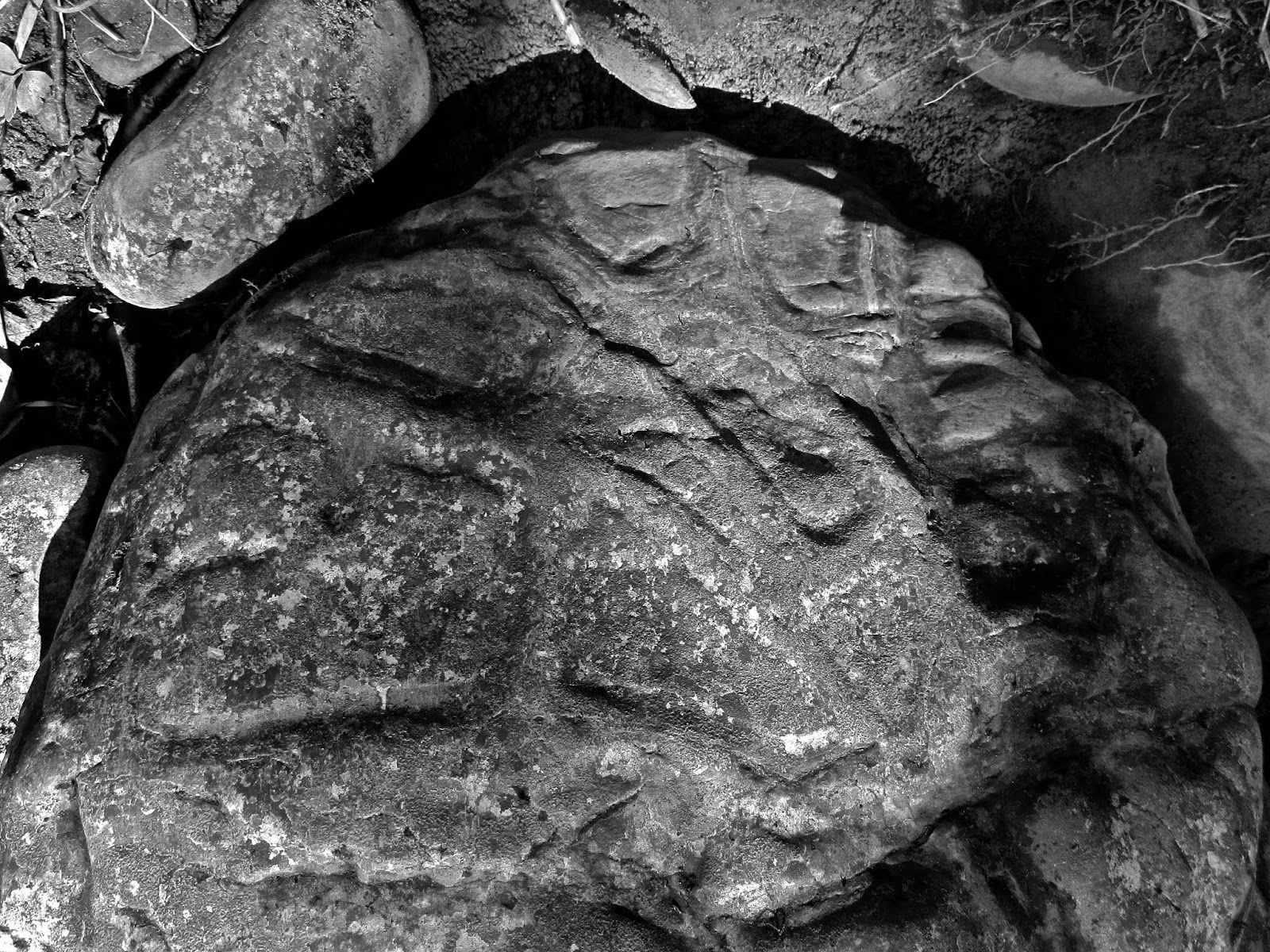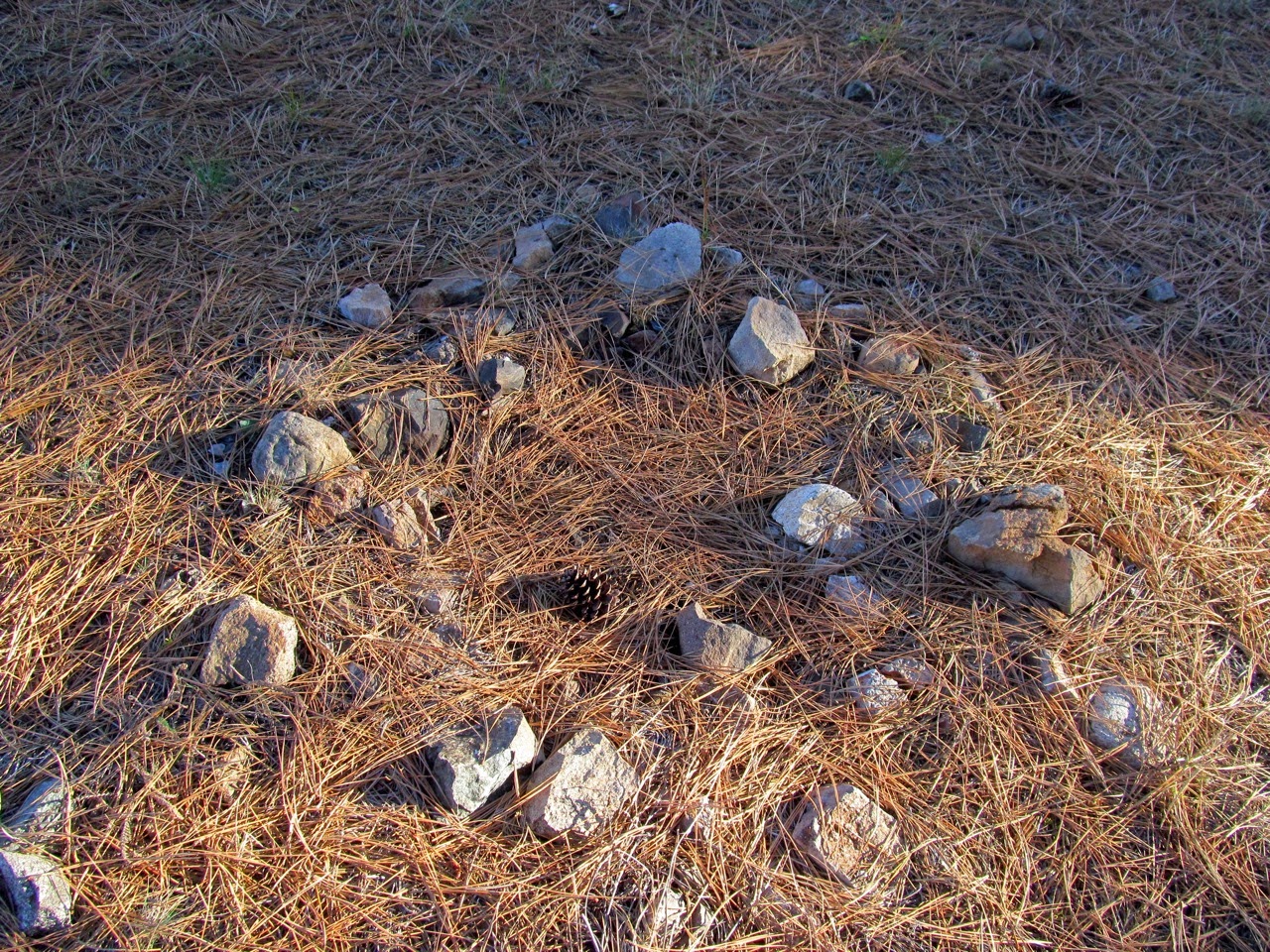This summer, the blog Archaeology In Tennessee posted an invitation for archaeologists to submit the "
Unwritten Rules" of the profession. I not only procrastinated posting anything, I also failed to follow up and see what Rules were published until linking them just now. Instead, I pecked out a list of my own, and didn't even post anything myself until now. This post is going to be long as hell, and there are no images to delight and distract, but it's about Rules, so what did you expect?
Unwritten Rules of Archaeology
Who They Think You Are...
Most people think you dig for dinosaurs or gold. You can educate them, maybe. You will chuckle or sneer about them with other archaeologists, later. But try not to be mean to them, for they know not what they do.
In the real world, there are usually people with far less education than you who know a lot more about a particular place, or how people used to live there. Learn from them before you go telling them about their past.
Who You Think You Are...
We belong to what the social anthros call affinal kinship groups (or used to, before several jargon changes), and can trace our lineages back through crew chiefs and academic descent; we recognize families accreted around certain projects of yore.
- Corollary 1: Be careful when dissing the founder of a school of thought, for the person you're speaking to may belong to that lineage.
- Corollary 2: Be careful when exalting an archaeological ancestor above all others, for it makes you come off like a zealot.
Unless you are in a field school or surrounded by people with little experience, limit yourself to a single field school story within any given work group. Mostly, these stories show how little you've experienced, and they become tiresome. If you participated in multiple field schools, best keep mum, lest you be branded Dolt or a Dilettante.
As in all anthropological endeavors, listen first and talk later, especially when there are experienced elders involved.
Archaeologists can be real backbiting bastards, but as far as I know that strategy proves maladaptive outside of the shrinking niche of tenured academia, and maybe won't even work there. Criticize all you want, with the understanding that you must either pledge fealty to a strong camp or risk not getting work in your area.
Join your state or regional archaeological society, attend its conferences, and give papers. Archaeology is not the same everywhere, and you'll learn more that is of practical value by meeting and listening to your local/regional peers than you will in several years of national conferences; it's also beneficial to your job prospects, from shovel bum on up to principal investigator. Once you've given a few papers, people think you're an expert, or at least aware enough to be more desirable than the person with a fancy degree but no local reputation.
Gear...
If you are a young archaeologist enamored with the latest technology, try not to dismiss archaic fieldcraft. When the satellites don't cooperate or the batteries go dead, tech savvy gets you nowhere. Besides, sometimes the old tech works best, which is why the best maps in Hawai`i are still made with plane tables and alidades.
The digital camera may be the greatest technological innovation in modern fieldwork. Take lots of photos to remind yourself of what you did all day. Shoot overviews, mid-range, and details. Take a shot of your GPS screen (see Redundancy). Get photos of flora and fauna for reference, and of anything that will look cool on your archaeology blog.
"Write in Rain" fieldbooks have their limits. Among these: too much rain, rainless but very high humidity weather, the inks of certain pens, and of course those ink-impervious clay smears on the paper. For pencil devotees, remember that after an erasure or two, you may not have full functionality.
The tool you buy needs to be modified. Unsharpened shovels and trowels are are the mark of an oaf. Grab a sharpie and draw a scale on your fieldbook, McGyver up a tool from things you can afford on perdiem (bamboo skewers have no equal in some situations, and stand in just fine for a handful of others). Watch and listen to the vets, but don't assume that they figured out all the best hacks.
Fieldwork...
Redundancy is your friend, and its value increases in proportion to the distance of the project area from your office. I know that the GPS unit stores coordinates, but writing them down in your field notebook will one day save you the pain and humiliation induced by lost or malfunctioning GPS units, not to mention software glitches, sunspots, EM-pulse warfare, whatever.
You will find things where you least expect them sometimes, but you never know which times. So stop whining and finish the transect.
After a long day of survey, or at the end of a project, be prepared to find something while walking back to the truck. If at all possible, plan on a half day on the last day, to allow time to record this find. The worst case scenario is that you find nothing and have enough time for a few beers or maybe even a shower.
Write-up...
Don't pretend to be more precise than your data merits. I cut my teeth (shins, really) on dry masonry field stone features, and measuring these to the nearest centimeter is not only more effort than it's worth, but is fakery. 10 cm increments are fine. Most of the time, think millimeters for artifacts, centimeters for depths, meters for site areas, …
- Corollary: Larger increments (rounding off to 5s or 10s, for example) can alert readers to uncertainty or imprecision they should be aware of in an honest report.
Unless you are a historic archaeologist working in a Commonwealth, use the metric system. (In the US, this trick mystifies the general public and our stature as scientists is enhanced.) Be ready to be conversant in feet and tenths thereof when the engineers and project manages show up, though. Also, be aware that when they talk about "1:100," it's inches:feet, which is 1:1200 in like units (this is a trick engineers use to confuse and cow the populace).
The observation so obvious you didn't need to write it down will be the one you forget. (I phrase this truth thusly because the brilliant wording of my initial realization was not written down.)
When writing reports, stick to the facts for the most part, and relegate interpretation to a short section near the end.
- Corollary 1: However, you should speculate frequently and in depth while in the field, drinking beers when the day is done, and drinking more beers at the local archaeological conference. This can help you discard the ridiculous and discover the creative, although it can end up the other way around if the drinking goes on too long.
- Corollary 2: Be extremely careful when speculating with non-archaeologists. Off-hand and joking interpretations may be later repeated as facts by people who put a bit too much stock in archaeologist's words.
And Finally,
The Written Rule of Archaeology
It's spelled with two A's. Archaeology, not archeology. Don't be an idiot.












































